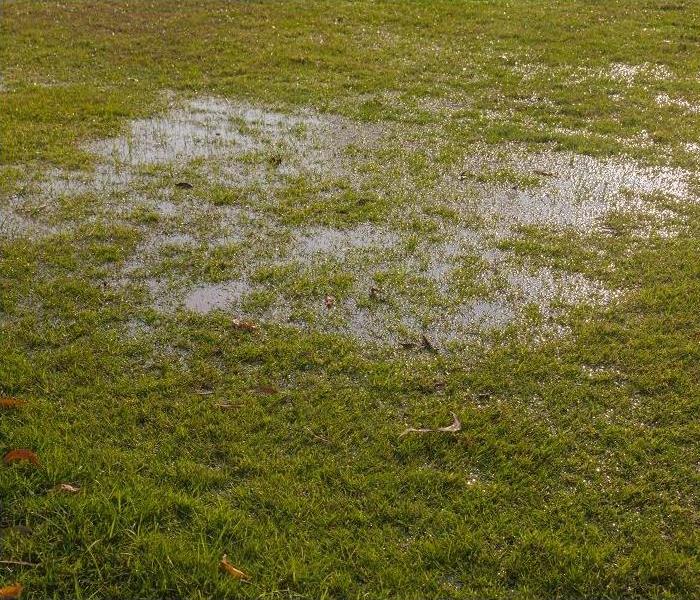How Commercial Owners Can Minimize Sprinkler Flooding
7/25/2022 (Permalink)
Keeping your commercial property in Clearfield, UT, lush and green is ideal, reflecting a pristine and attractive setting. However, that's not the only reason to focus on sprinklers. Proper irrigation maintenance minimizes several concerns, decreasing the company's utility costs and flooding probability.
Stopping Floods: The Importance of Irrigation Maintenance for Commercial Properties
According to the Environmental Protection Agency, EPA, a small leak has a significant impact. Even something the size of a dime could allow as many as 6,300 water gallons per month to go to waste. This loss adds to the water bill and begs the question: where does all that water go? It could seep into the soil, or it could flood the building. Adopt the following habits to catch issues and avoid water damage quickly.
1. Evaluate the System Regularly
You can program irrigation systems to go on at your will, setting automatic timers; this option offers you flexibility but limits your oversight. You won't know if something breaks or leaks. Therefore, set aside time to inspect the sprinklers before kicking them on.
The unit has multiple pieces, and they're vulnerable to issues. People can easily affect a sprinkler head placement by stepping on it or running equipment over it. Simple, everyday actions move spray direction or prevent operations. Thus, check each of the following pieces to see if they function correctly:
- Lines
- Heads
- Controller
- Nozzles
- Valves
If anything is slightly off, your land may not get what it needs. In addition, water could accumulate quickly, building up a flood. Move pieces into proper places and replace anything not working.
2. Look for Signs of Trouble
The potential for sprinkler flooding increases when you have something awry, and sometimes the land tells you more than the sprinklers themselves. Therefore, observe the grounds for changes or unusual appearances such as dryness, dips or puddles.
Pay close attention to the heads and nozzles. Is the water flowing evenly, or is it building around the piece? Intense sprays and low pressure indicate potential leaks or breaks.
If you cannot see a physical sign of distress but think something is off, contact a water remediation team for help. These professionals can use cameras to inspect the lines, determining where a breach has occurred.
3. Know How To Handle Floods Quickly
When a flood does occur, it's imperative to react quickly and appropriately. As part of your irrigation maintenance plan, prepare protocols for handling instructions. After all, water harms the building's structure, dampening materials and encouraging mold and mildew. What may seem harmless could create significant devastation. Have the phone number for water restoration specialists in Clearfield, UT, and call them as soon as you observe puddling or damage.
4. Get an Annual Inspection
Have experts review your irrigation system at least once a year, especially in the spring. Many companies turn off the designs in the winter. A lot of things can happen during those cold months. Professionals can assess the parts, fix anything amiss and get you on the right track for the warmer days.
Broken sprinklers increase the chance of a flood.
Protect your commercial property by prioritizing irrigation maintenance and checking your sprinklers before turning them on.




 24/7 Emergency Service
24/7 Emergency Service
